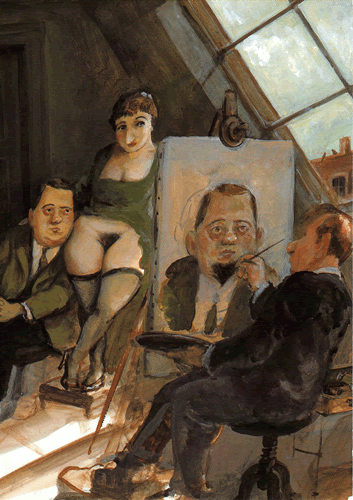The Mechanics of Acquiring Political Power

Renowned books on how to attain or keep power are by Machievelli, (The Prince) by Sun Tzu (The Art of War) and by Saul Alinsky. Alinsky (1909-1972) was an effective organizer and radical and he wrote the book, Rules for Radicals (1971) N.Y. Over the years this has become scripture as a handbook on the mechanics for achieving power. Extremists and radicals of both the left and the right pay attention to its teachings.
Alinsky was dismayed by the unjust world in which he found himself. He writes:
“In this world laws are written for the lofty aim of ‘the common good’ and then acted out in life on the basis of the common greed. … It is a world not of angels but of angles where men speak of moral principles but act on power principles; a world where … ‘good’ is a value dependent on whether we want it.”
His offers his handbook for action to achieve the fundamental ‘good’:
“.. our desire (is) to change (the world) into what we believe it should be.”
“In this book we are concerned with how to create mass organizations to seize power and give it to the people; to realize the democratic dream of equality, justice, peace, cooperation, equal and full opportunities for education, full and useful employment,…(so) man can have the chance to live by values that give meaning to life.”
The nobility and grandeur of his motivation is evident. Alinski’s words are stirring. His catalogue of evils resonate with us. We know its truth. His righteous indignation drives people to join him.
Ah, how sweet are the words of demagoguery.
Let us suppose that Alinsky managed to ‘seize power’. How would he ‘give it to the people’? How are the people, in fact, to wield power? How is the beautiful dream to be effected; if Alinsky had the chance to effect it?
Alinsky never tells us. He doesn’t address this ultimate and critical concern; how he would use power as no other before him has done – to produce ‘good’. His thrust is on getting power.
He spends pages in moral outrage enumerating the injustices he finds – the Vietnam war, “racist discriminatory culture”, strip mining for coal … And then moves on to his contribution: How to organize constituents into a force with which to be reckoned. How to build a base for power. The mechanics of acquiring power.
“To build a powerful organization takes time. It’s tedious but that’s the way the game is played..”
How to play and win at this game is what his activist devotees derive from Alinsky.
Significantly he writes in his chapter on means and ends.
“The practical revolutionary will understand Goethe’s ‘conscience is the virtue of observers and not agents of action’; in action one does not enjoy the luxury of a decision that is both consistent with one’s individual conscience and with the good of mankind. The choice must always be for the latter. Action is for mass salvation and not for the individual’s personal salvation…. first rule; that one’s concern with the ethics of means and ends varies inversely with one’s personal interest in the issue.”
So here is the picture being painted: We live in a faulted world where all efforts to bring about a better world have, heretofore, failed. Nevertheless, Alinsky aims to bring it about by gaining power. Power can bring about the good world that “should be”. And the achievement of power must supersede concerns about scruple. When close to the battle-for-good, matters of ethics are a distant concern, says Alinsky in agreement with Goethe. In the pursuit of a great dream, doing evil in the service of good is permitted.
With precisely this outlook Lenin, in the Russian revolution of 1917, created the ‘dictatorship of the proletariat.’ Dictatorial rule. Proclaimed for the good of the people. In fact, it oppressed them. Noble goals, ignoble consequences.
Can ‘good’ be objective. Clearly, Alinsky thought so. But surely ‘the good’ is a subjective notion. We don’t know what ‘the good’ is. All we know is ‘what we want’. We call that ‘good’. This is precisely Alinsky’s complaint. He cannot abide the subjectivity of good. He wants to bring objective good about. And to do so he is willing to abide evil.
The symbiotic incompatibility between good and evil is the subject in this essay called Peace and Justice.
The picture is by Rudi Herzlmeier whose whimsical work I admire greatly. I wrote to him for permission to use this image but I never got an answer.